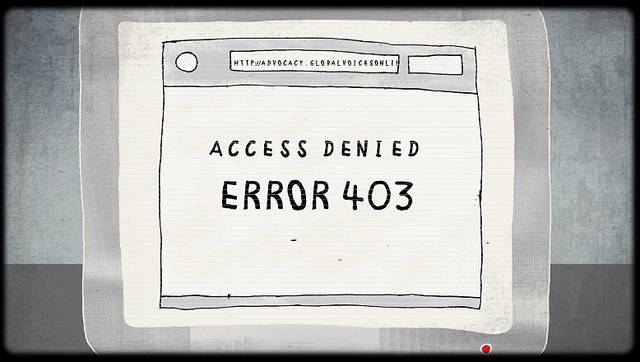UPDATE, Jan. 9, 2014:
After publishing the post below, we started receiving messages leading us to believe that the application of blocking in Lebanon is applied inconsistently across ISPs. To try to gather more information about this interesting phenomenon, we’ve made the Google spreadsheet public and added columns for ISPs, so that through crowdsourcing we can try to map what’s actually going on in the country with regard to blocking of websites. Please test the URLs and add your results, or if you find other blocked URLs, add them too. Also, read Maharat Foundation article in Arabic about the blocking.
[divider]
I wanted to write something about blocked websites in Lebanon and share some of the results I have from a Lebanese Internet provider back in the summer time. The technical methodology of receiving the results will not be published here, but maybe with the second research we will do in the future. This is an iterative process, anyone can contribute, and please share with us if you found any blocked websites, the results below happened 4 months ago, and the list might needs to be updated:
Explanation:
Blocking the Priest Labaki scandal website could be implemented under libel and defamation law, and as expected show the power of religion over the juridical system. Casino Du Liban has the monopoly right in Lebanon, and as @Sygma refreshed our mind in the last summer discussion what the law states: “Decree 6919 of June 29 1995, Casino du Liban was given monopoly over all gambling activities to protect public morals.” Therefore blocking the 9 gambling websites is justified, from a legal perspective, despite the fact how easy it is to bypass filtering.
Following the economy and trade law, Israeli boycott office department that detail banning all kinds of economic and trade relations between Lebanon and Israel. Lebanon is actually blocking 6 Israeli websites, while Israeli authorities are also blocking Lebanese IP from accessing 2 websites, the Tel Aviv Stock Exchange, and TASE, a website that provides employments.
While we can debate on agreeing or not the blocking of some specific websites, what we can’t really agree on is the lack of information about the process, and the missing transparency. A state needs more than legal support to function and survive, it needs the community contributions and support, to remind them that some laws need some amendments like libel and defamation, while others can be an income opportunity by unblocking poker websites for taxations. Most importantly, we need to have all this in place to call on our politicians and public officials to be accountable for their actions.


